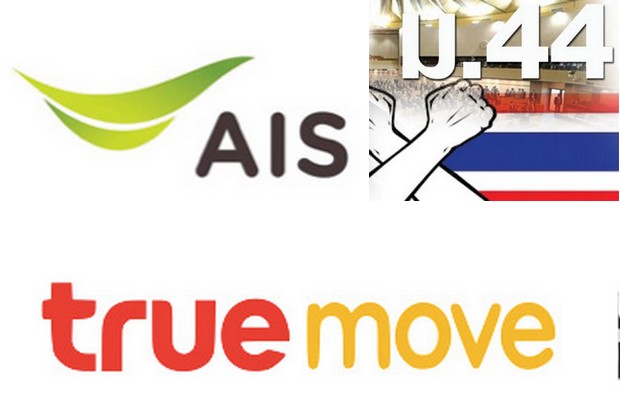
The government has yet to hammer out the details of how it will use Section 44 to assist the country's top three mobile operators by delaying the final payments on their bid fees for the 900-megahertz spectrum auction.
Deputy Prime Minister Wissanu Krea-ngam said Wednesday that Tuesday's meeting of the National Council for Peace and Order (NCPO) raised the issue for discussion but did not make any decisions.
The NCPO told the National Broadcasting and Telecommunications Commission (NBTC) to supply more information to the government, such as the suggested length of payment delay, duration of payment and interest charges.
"I didn't join the NCPO meeting on Tuesday, but as far as I know the information submitted by the NBTC to the NCPO is insufficient for the council to make a decision on the issue," Mr Wissanu said.
He said the government has previously considered helping mobile operators, either by invoking Section 44 or through some other measure.
The big three mobile operators -- Advanced Info Service (AIS), Total Access Communication (DTAC) and True Move -- have been lobbying the government to delay the payments, which are scheduled for 2020.
The mobile operators told the government that if the payments are not delayed, they will not have enough capital to bid in the 5G spectrum auctions.
They said their investments in 3G and 4G technology have yet to reach a break-even point, while they have already availed of all bank loans. They said they would not have any capital left to invest in 5G, which is expected to cost 100 billion baht each, excluding 100 billion baht in bidding fees, said Takorn Tantasith, secretary-general of the NBTC.
Mr Wissanu said the government needs to carefully consider comprehensive solutions not only for the three mobile operators but also for digital TV operators.
"The government still has time to consider the issue, and a decision should be based on information and be carefully made," he said. "The government is not in a hurry to issue the aid measure before the general election."
Mr Takorn had said earlier that the government should make a decision before the general election.
Somkiat Tangkitvanich, president of the Thailand Development and Research Institute (TDRI), urged Prime Minister Prayut Chan-o-cha not to invoke Section 44 to ease the financial burden for the winners of the 900MHz licences, especially so close to the general election, as it could be perceived as an abuse of power.
He said the procedure for the planned 700MHz auction has been too hasty for Thailand because there are not yet any real business cases for 5G adoption.
According to Mr Somkiat, if the government invokes Section 44 to extend the 900MHz payment term for AIS and True, the state will lose at least 16 billion baht because of the very low interest rate (proposed by the NBTC) that the two companies pay to the state.
The NBTC should instead promote 5G adoption through a spectrum roadmap for 5G, including standard and reserve prices for low-middle-high band ranges, stable regulatory conditions to help reduce costs for operators from unfair competition and the promotion of real infrastructure-sharing for the industry.
Mr Somkiat said Thailand does not need to rush the planned 700MHz licence auction to prepare for 5G adoption, as the commercial launches of 5G services globally have yet to occur. The NBTC must still finalise a spectrum roadmap for 5G, including standard and reserve prices for low-middle-high band ranges.
Mr Somkiat said delaying the auction does not mean Thailand will fall behind in 5G, as only four countries (South Korea, Japan, China and the US) have launched 5G in a few cities.